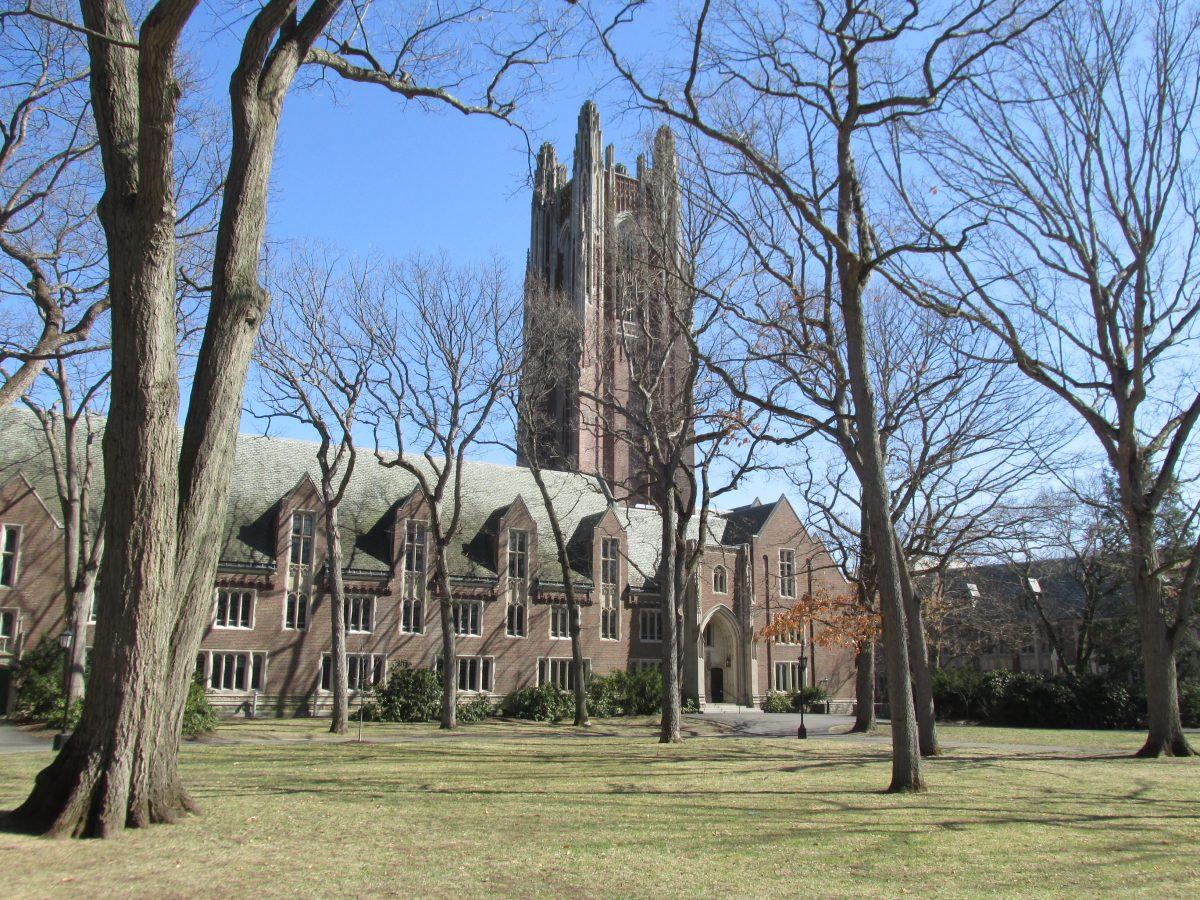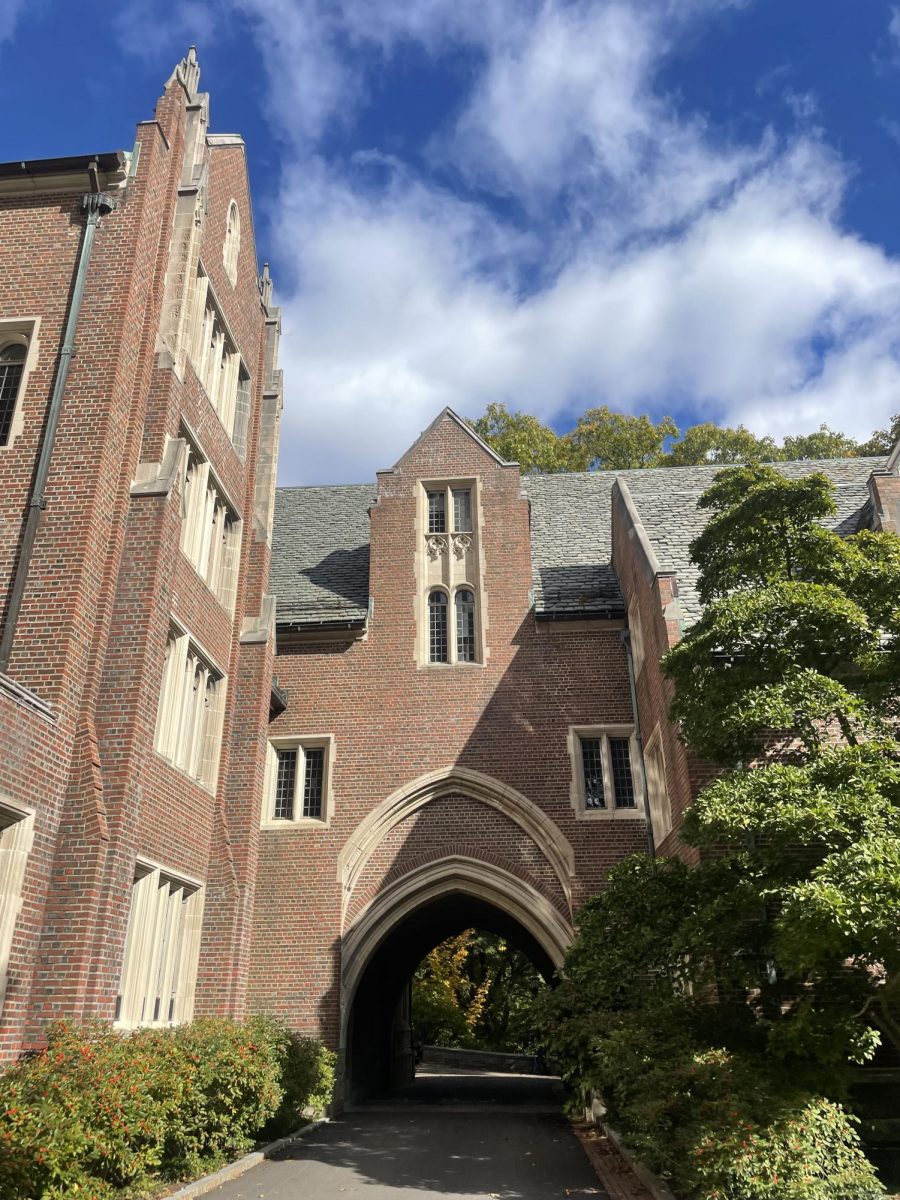For the Class of 2024 at Wellesley, this year was a wave of drastic changes and disappointments.
Many faced an unexpected end to their high school career, with remote schooling and drive-through graduations. For Emma Lee ’24, this culminated in a rather anticlimactic graduation.
“Our school actually put together this PowerPoint and they just read off our names, while flipping through our pictures,” Lee said. “No walking across the stage, you just sat in front of a YouTube live stream. You took your phone and recorded the moment your picture flashed across, and that was it.”
For Cristina DeAgazio ’24, however, there was some consolation in that her senior class was not the only one going through disappointment. Seniors all over the country were going through the exact same.
“With the gravity of what was going on around the country, people becoming very ill [and] losing their loved ones, it’s hard to sit here and sulk about losing all those events. Is that something I can sit here and cry about when there was so much more going on?” DeAgazio said.
Even though graduation and prom are considered to be two major events at the end of senior year, both Lee and DeAgazio agreed that it was important to keep things in perspective. Riya Balachandran ’24 was not particularly dejected regarding the big events, but rather the more personal interactions.
“I think actually, those giant milestones didn’t impact me so much as the loss of like little moments, like when you speak to your friends in the hallway or you say something really funny in class,” Balachandran said. “Those are things I missed more.”
Lee and DeAgazio continued to stay in touch with their friends to maintain the social connections they had sustained before the pandemic. For Taylor Woody ’24, routine correspondence with friends served not only as a source of human interaction, but also as an outlet to talk about the problems she was facing with her mental health.
“During the pandemic, I started being a lot more aware of my mental health, and trying to change, so I would be more vocal about problems I was having. I would talk to my parents or call a friend,” Woody said. “I would just talk to more people about it, so I didn’t have to struggle with it all by myself.”
The impact of COVID-19 itself, beyond the social isolation, varied across the nation. Woody was directly impacted by the virus when her aunt passed away early September.
“She was recovering well, and then overnight, she got sick again and passed away,” Woody said.
Lee was also impacted by the pandemic as her parents work in the travel industry. Neither of them have lost their jobs as of yet, but the months of uncertainty was still a difficult trial to deal with.
Balachandran, who has grandparents in India, also had to cope with not knowing what to expect, and not being able to help from so far away.
“I think both of them may have had [COVID-19] at some point because they both had all the symptoms, but neither of them went to the doctor because my grandfather has tuberculosis and cancer and he was afraid of the risk,” Balachandran said. “I just try not to think about it too much because it is just too stressful and overwhelming. There’s nothing more to do than just being hopeful. I think the worst part really was that he wanted to be able to see me graduate high school. And he couldn’t go because of airports being so dangerous, so now his new goal is to live to see me graduate college.”
Here in the United States, however, the pandemic has not been the only challenge many have faced. The country is going through a period of great social and political change, with the resurgence of the Black Lives Matter movement and the election.
For both Lee and Woody, the continuous negative news cycle was particularly stressful.
“It kind of started with a lot of attacks on Asian Americans, with people being lit on fire, people being brutally sliced open in the streets, elderly people being kicked in the head, [or] being ganged up on by large communities,” Lee said. “Comparing our experiences to the situation with George Floyd, Asian Americans kind of took that as ‘Asians don’t experience racism’, but as more news reports came out of people being attacked in the streets and in public, there was a wake up call within the community.”
Lee was not able to protest because it put her family at too high of a risk, but she participated in online dialogue and joined discussions about Black Lives Matter. For Woody, a Black woman, it was a particularly difficult time.
“I told myself I needed to be more active and that I needed to be more attentive to what’s happening. It did negatively impact my mental health because I became kind of a pessimist,” Woody said. “I was always reading more articles, I was always looking at different accounts, I was doing a lot of stuff and none of it was really positive, so it was just like [one] negative thing after negative thing. I wasn’t focusing on anything positive at the time.”
Woody was able to change her outlook after her mother admonished her for constantly checking the news and Instagram. Balachandran also learned to take a break from social media for her own mental health.
“I feel like it’s helpful to take a break once in a while because when you’re on there all the time it’s just constantly being reminded of how horrible the world is,” Balachandran said. “I think it’s really great though that COVID, in a way, inspired a lot of people to get more involved in social activism because a lot of their usual responsibilities were canceled and now they had all this time to be able to focus on such a large movement.”
For Lee, DeAgazio, Balachandran and Woody, being on campus was something to look forward to in a time of a constant stream of terrible news.
“Being able to be somewhere [else], to consistently see people, and to have places to go really did help with my mental health state,” Lee said.
They also emphasized that they would pay more attention to their mental health, after having experienced dramatic changes through lockdown and the pandemic.
“I am definitely being more mindful of how I’m feeling, and how it can negatively impact me, and the people around me, if I don’t recognize it,” Woody said.






